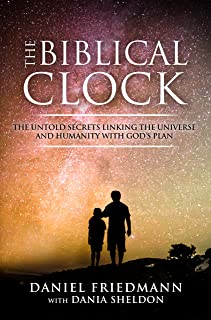It
was 50 years ago today that the Nation was glued to their television
sets to see the world's first Moon landing. At 4:17 EST (eastern
standard time) we heard the words that the Eagle had landed on the
moon.
"Houston,
Tranquility Base here. The
Eagle has landed,"
Neil Armstrong radioed Mission Control at 4:18 p.m
A
short while we saw Neil Armstrong step out of the lunar lander and
start the descent to the surface of the Moon. We watched him back
down the ladder until he reached the bottom rung and jumped down to
become the first man to step on the surface of our Moon.
"That's
one small step for a man, one giant leap for mankind." Armstrong
said.
Shortly
after commander Armstrong stepped on to the lunar surface we see Buzz
Aldrin step out of the capsule. He starts his slow descent to become
the second man to set foot on the Moon. Once Aldrin is down, the two
men begin their mission of collecting rocks and conducting various
experiments. The two men spent two and a half hours on the lunar
surface before blasting blasting off in the lunar module. Moments
later they coupled with the command capsule being piloted by Michael
Collins.
After
completing their mission the three heroic Astronauts headed back to
Earth. After a few days in space the capsule splashed into the
Pacific Ocean near Hawaii.
The mission actually started on July
16th as all eyes were focused on the Kennedy Space Center
in Florida a three men (Neil Armstrong, Buzz Aldrin, and Michael
Collins) took the long walk to the space capsule at the top of a
Saturn V rocket. Once they entered the capsule and hatch was secured
we kept watching and praying as we listened t o the counted down.
Once the engine roared to life we cheered and the cheering grew as we
watched Apollo 11 lift-off the platform.
“Thirty seconds and counting.
Astronauts report it feels good. T-25 seconds. Twenty seconds and
counting. T-15 seconds, guidance is internal. 12, 11, 10, 9 ...
ignition sequence start ... 6, 5, 4, 3, 2, 1, 0 ... All engines
running. Liftoff! We have a liftoff ... 32 minutes past the hour,
liftoff on Apollo 11. Tower clear.” was the commentary we heard
from our news stations.
It was a thrilling sight that we have
witnessed many times before with 9 previous successful, Apollo 1
ended in disaster, launches. This one was special though since it
would end with the first man stepping out on the surface of the moon.
We watch as the rocket soared into the heavens and maneuvered into
the proper course as it headed for its final destination.
“Neil Armstrong reporting the roll
and pitch program which puts Apollo 11 on a proper heading. “ We
heard the reporter say.
The days following that thrilling site
we eagerly awaited to hear news of our three astronauts. We couldn't
get enough of seeing video straight from the flight deck seeing Neil
Armstrong, Buzz Aldrin and Michael Collins as they went through their
daily rituals in space. Then 4 days later, as we watched the moon
landing, we all let out the breath we have all been holding since
watching the launch on July 16, 1969.
"There were so many things that
could fail and result in our astronauts being stranded on the moon or
killed," retired NASA engineer Brooks Moore of Huntsville
remembered this week.
So, today we say happy anniversary to
NASA (National Aeronautics and Space Administration) for giving us
that thrilling site 50 years ago.



